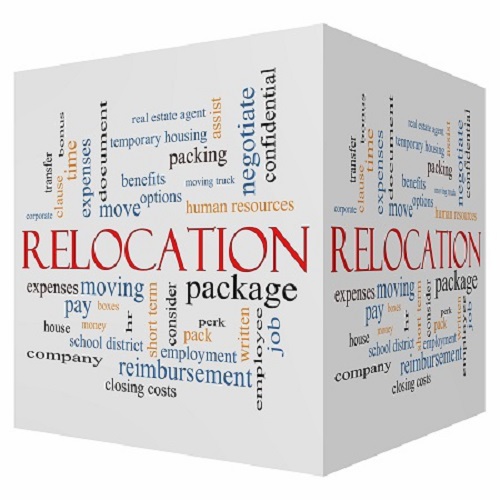April 14th, 2025

Earth Day is celebrated every year on 22 April. This tradition began in 1970 in response to growing environmental concerns after a large oil spill in Santa Barbara, California. And over the decades, Earth Day has become a global event. One that brings together over a billion people all over the world with one shared goal – raising awareness of environmental issues and pursuing a sustainable future.
For businesses and organizations, Earth Day also offers an opportunity to raise awareness and foster environmental responsibility within the workplace. In this article, we explore the role of offices and workplaces generally in broader sustainability efforts, discuss the benefits of embracing Earth Day with practical eco-friendly practices, and give some ideas on how to organize engaging office events to celebrate this special date.
The Role of Office Spaces in Sustainability
Office environments significantly influence environmental outcomes. According to the World Resources Institute, 6.4% of global greenhouse gas emissions are emitted by commercial buildings alone, including offices.
And although energy consumption contributes 60% of an office’s total carbon footprint, there are other office-related activities that can also be targeted to achieve effective sustainability measures during Earth Day and beyond.
Read the rest of this entry »
Tags: Business Advice, CSR, Earth Day, employee engagement, Greener Offices, Office Organization, Office Talk, Office-tips, sustainability
Posted in Business Advice, CSR, Eco Matters, Environment, Office Health, Office Organization, Office Talk | No Comments »
Add to: Del.icio.us | Digg
September 5th, 2023

Meetings are an essential aspect of corporate culture. It’s estimated that the average office worker in the US spends a third of their time in meetings, and the figures are even higher for executives and senior staff.
The widespread adoption of online communication tools has transformed the way meetings take place, prompting a debate between the merits of in-person and virtual meetings. In this article, we examine the pros and cons of in-person vs. online meetings and discuss why face-to-face interactions continue to have value.
Online meetings: Pros and Cons
In a relatively short period of time, virtual meetings have become the norm in most office-based companies. Data from 2022 shows that in just two years, the amount of time spent in virtual meetings had increased from 14 hours per week to more than 21 hours per week, matching or even exceeding the time spent in face-to-face meetings. There are several advantages and disadvantages to this virtual meeting format.
Read the rest of this entry »
Tags: 2023, Business Advice, communication, In-Person Meetings, Meetings, Office-tips, Video Conferencing, Virtual Meetings
Posted in 2023, Business Advice, Employment and Worklife, Meetings, Office Organization, Office Relations, Remote Workers, Technology, Trends and Statistics | No Comments »
Add to: Del.icio.us | Digg
May 1st, 2023
Commercial real estate costs have been increasing in most US urban markets for a while, which has highlighted the need to be strategic about new office space investments.
For this reason, office-based businesses are rethinking their space allocation after making changes to work models and switching to hybrid or remote work.
Planning the optimal use of office space is a smart move. Not only can this help reduce costs, but it also ensures employees work in a more pleasant environment that is conducive to productivity and well-being. This means that office space planners are in high demand, however, not every company has the luxury of having an employee that is up-to-date on office space planning guidelines.
In this article, we look at 12 ways in which US businesses can optimize their office space planning. If you are looking to polish up on office space planning basics, then read on to find out more!

Read the rest of this entry »
Tags: 2023, flexible office space, office space planning, tips and tricks
Posted in 2023, Office Organization, Office Planning | No Comments »
Add to: Del.icio.us | Digg
July 27th, 2017
 The following is the sixth in our series focusing on providing information on the various types of office space available, from business parks to hot desking and project space, business incubators, conventional office accommodation to virtual office space options, managed offices to shared co-working options.
The following is the sixth in our series focusing on providing information on the various types of office space available, from business parks to hot desking and project space, business incubators, conventional office accommodation to virtual office space options, managed offices to shared co-working options.
Typically located in business districts of larger cities, serviced offices are becoming more of a standard and less of a trend for today’s small business owner. And why not? Renting a serviced office space cuts down on a number of issues and costs associated with having an office. Most importantly, rental of a serviced office space provides an immediate solution to the office space problem.
The Whole Package
Serviced offices are ready to go as soon as you sign the agreement. There is very little delay between deciding to open an office and actually having an office ready for business.
Serviced offices are usually rented on a month to month basis, as opposed to the long term three to five year commitment of a traditional office space lease. The monthly rent may appear to be slightly higher than the traditional lease price, but the whole package aspect of serviced offices makes them a better deal. New businesses, start-ups, and small businesses may neglect to calculate the additional costs of furnishings, equipment, and staff when they consider opening an office. The whole package concept eliminates the worry of those forgotten expenses.
Rental costs frequently include the costs of:
Furnishings
Businesses can begin straight to work on the first day without any delays waiting for deliveries of desks, lamps, bookshelves, or chairs. A serviced office includes all of these. In addition, conference rooms, kitchens, meeting spaces, and other shared amenities are available as needed. Conference rooms, for example, can be rented by the hour as an addendum to your office space lease. Read the rest of this entry »
Tags: Office Space, Serviced Office Space
Posted in Business Start Ups, Office Organization, Office Space Options Series | No Comments »
Add to: Del.icio.us | Digg
June 24th, 2017
 The following is the fifth in our series focusing on providing information on the various types of office space available, from business parks to hot desking and project space, business incubators, conventional office accommodation, managed offices to shared co-working options.
The following is the fifth in our series focusing on providing information on the various types of office space available, from business parks to hot desking and project space, business incubators, conventional office accommodation, managed offices to shared co-working options.
For a business in need a prestigious office address and presence without an office lease, virtual office options are a great solution.
What is a Virtual Office?
A virtual office is a most effective solution to the dilemma faced by small businesses and entrepreneurs. Virtual offices provide an address, usually in a recognized business district, and other amenities that allow users to maintain a professional image without having to maintain a high cost conventional office space.
Why have a Virtual Office?
A virtual office allows work from home entrepreneurs more economic efficiency. Having a virtual office helps retain the image of a traditional business, with a professional office address, without the expense of renting an office in the business district. Virtual office users have the benefit of being able to flexibly match expenses with incomes increasing or decreasing the services as their revenue fluctuates.
Virtual offices can help reduce overhead while maintaining a high level of professionalism. They provide you with both communication services and physical space services, based on your need and determined by you.
What is included?
Generally, a virtual provider offers a business address and mail handling services, at the least. At the most, programs will include physical offices, dedicated phone lines with receptionist service, and meeting spaces. Virtual office services offer a variety of packages that include some or all of these amenities. Some services allow you to customize a package to suit your particular needs. Read the rest of this entry »
Tags: Office Organization, Office Space, office space options, Virtual Office Services
Posted in Business Start Ups, Office Organization, Office Space Options Series, Virtual Offices | No Comments »
Add to: Del.icio.us | Digg
April 13th, 2015
 When a company decides to relocate to a new location, whether they are an SME or a corporate giant, the relocation project can be complex. Whether a business relocates in-state, across the country or internationally, it requires a team of planners with diverse skills and experience to accomplish a smooth, seamless relocation process.
When a company decides to relocate to a new location, whether they are an SME or a corporate giant, the relocation project can be complex. Whether a business relocates in-state, across the country or internationally, it requires a team of planners with diverse skills and experience to accomplish a smooth, seamless relocation process.
In addition to the actual relocation planners involved, there are often additional teams of assistants that are required. These include:
- Personnel and human resources experts and recruiters
- Corporate legal advisers
- Real estate managers and supervisors
- Tax and/or CPA specialists
- Environmental consultants
These are a few of the teams needed to accomplish relocation with minimal disruption.
The size of a company will relate to the size of the relocation project and amount of planning. There is much less involved in relocating a law firm comprised of a half dozen employees than a research laboratory with two dozen research personnel and administrative associates.
Small to moderately sized offices are generally easier to relocate than manufacturing and retail facilities with several detached buildings in the facility’s complex. Read the rest of this entry »
Tags: Business Advice, Company Relocation, Office Organization
Posted in Business Advice, Company Relocation, Office Organization | No Comments »
Add to: Del.icio.us | Digg
July 19th, 2012
No one wants to just tread water for their entire career. Doing “just enough” to get by at work doesn’t just hurt your career, it hurts you personally. After all, the amount of money you make can directly influence your quality of life. If you are unwilling to put in the work it takes to get ahead, then you can more or less expect to be unsuccessful forever.
There is a lot of politicking that goes into pushing your career ahead at an office. Any job that requires you to stay in a confined space with other people for hours a day will have this trait. However, this doesn’t mean that the average person can just talk their way into a great promotion. In the few cases where this is possible, you probably wouldn’t even want the job in the first place.
Read the rest of this entry »
Tags: Business Advice, Employment, Meetings, Office Etiquette, Office-tips
Posted in Business Advice, Meetings, Office Etiquette, Office Organization, Office Relations, Office Talk | No Comments »
Add to: Del.icio.us | Digg
August 6th, 2009
 There many ways that we can save energy in the workplace, saving both the environment and the office budget. Businesses can help by purchasing energy efficient equipment, cutting down on waste and unnecessary energy usage.
There many ways that we can save energy in the workplace, saving both the environment and the office budget. Businesses can help by purchasing energy efficient equipment, cutting down on waste and unnecessary energy usage.
Energy Star is a joint program of the U.S. Department of Energy and the U.S. Environmental Protection Agency and promotes energy efficient products and practices, offering advice and guidelines to help reduce energy wastage.
- When leaving the office be sure to turn off your computers, monitors, photocopiers and printers.
- Using a laptop computer uses ninety percent less energy than a desktop computer, the same is true for using an ink jet printer rather than a laser printer.
Tags: Office Organization, Office-tips
Posted in Business Advice, Office Organization | No Comments »
Add to: Del.icio.us | Digg
May 15th, 2009
 Working as a team is essential to the overall success of you businesses and developing an effective teamwork structure within your organization takes understanding and experience. Belonging to a team and contributing to the ‘whole’ produces far greater results than everyone going it alone and will improve motivation and communication. Each individual has a particular job within group, but you are all striving for the same goals and the same overall objectives, so being able to see the bigger picture is very important.
Working as a team is essential to the overall success of you businesses and developing an effective teamwork structure within your organization takes understanding and experience. Belonging to a team and contributing to the ‘whole’ produces far greater results than everyone going it alone and will improve motivation and communication. Each individual has a particular job within group, but you are all striving for the same goals and the same overall objectives, so being able to see the bigger picture is very important.
Read the rest of this entry »
Tags: Office Organization, Office Relations
Posted in Business Advice, Office Organization, Office Relations | No Comments »
Add to: Del.icio.us | Digg
April 23rd, 2009

Office Recycling
Every office should have a recycling scheme in place, our planet is our responsibility and the waste recycling habits you keep at home should be continued in the workplace. There are many types of waste products that can be recycled in the office, from paper to computers.
Read the rest of this entry »
Tags: Office Talk, Office-tips
Posted in Office Etiquette, Office Organization, Office Talk | No Comments »
Add to: Del.icio.us | Digg



 The following is the sixth in our series focusing on providing information on the various types of office space available, from
The following is the sixth in our series focusing on providing information on the various types of office space available, from 
 There many ways that we can save energy in the workplace, saving both the environment and the office budget. Businesses can help by purchasing energy efficient equipment, cutting down on waste and unnecessary energy usage.
There many ways that we can save energy in the workplace, saving both the environment and the office budget. Businesses can help by purchasing energy efficient equipment, cutting down on waste and unnecessary energy usage.
